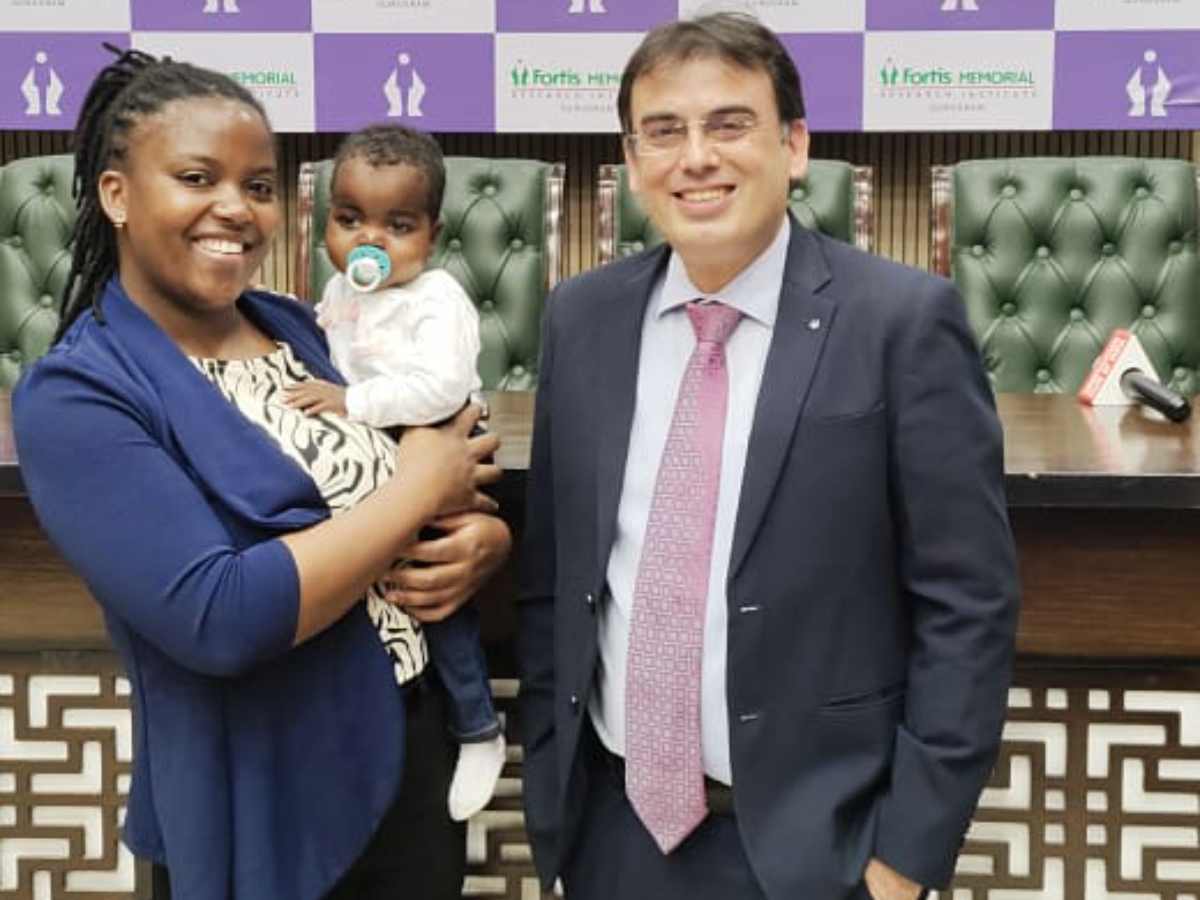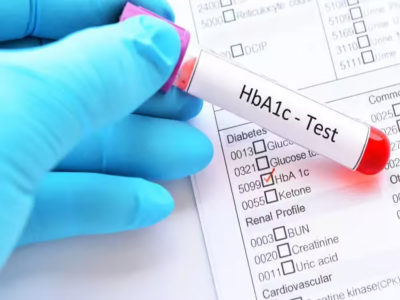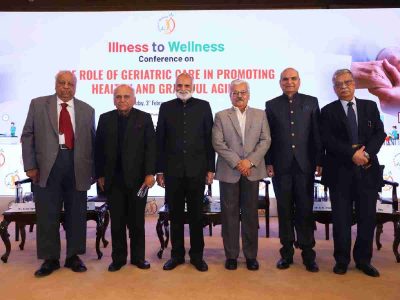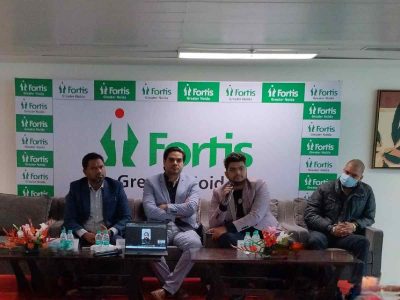Doctors have successfully treated a 14-month-old Kenyan child, Baby Arianna, diagnosed with Pearson Syndrome—a rare and life-threatening blood disorder with a prevalence of roughly 1 in a million—at Fortis Memorial Research Institute, Gurugram.
This marks the first case in India where a half-matched donor transplant was performed for Pearson Syndrome, with Baby Arianna becoming the seventh documented case worldwide to receive such a treatment.
Pearson Syndrome, an extremely rare genetic disorder, primarily impacts the bone marrow and pancreas, often leading to severe anaemia, low platelet count, stunted growth, and other serious health complications. Most children affected by the disorder do not survive beyond their first year. After suffering from severe anaemia since birth and multiple unsuccessful transfusions in Kenya, Baby Arianna was brought to Fortis Gurugram, where a diagnosis confirmed the condition.
The team of doctors led by Dr Vikas Dua, Principal Director and Head of Paediatric Haematology, Haemato Oncology, and Bone Marrow Transplant at Fortis Memorial Research Institute, Gurugram, performed a stem cell transplant with a thoroughly planned chemotherapy regimen.
Also read: Delhi hospital performs leadless pacemaker surgery on 75-year-old woman
The patient was discharged in a stable condition within 21 days and has been under regular weekly OPD follow-ups. This is the first such case treated in India with a half-matched donor and the seventh Bone Marrow Transplant, as reported in medical literature for the treatment of Pearson Syndrome.
Baby Arianna had been suffering from severe anaemia since birth, which significantly affected her overall growth and development. She had undergone multiple blood and platelet transfusions in Kenya, but it did not improve her health.
As her symptoms worsened, she urgently needed a half-matched donor transplant to survive. She was then brought to Fortis Gurugram with anaemia and low levels of platelets in her body.
Upon admission at Fortis Gurugram, the patient underwent bone marrow testing along with certain genetic tests, which revealed Pearson Syndrome.
Given the complexity and rarity of the condition, a multi-disciplinary approach was adopted, where Arianna was screened by a team of doctors comprising Paediatric Nephrologists, Paediatric Gastroenterologists, Ophthalmologists, and ENT specialists, as this condition affects multiple organs of the body and can cause diarrhoea and eye diseases such as abnormal lens and pupil, glaucoma, and hearing loss.
Post-evaluation, a bone marrow transplant was chosen as the optimum line of treatment, as the syndrome is a multisystem condition, and only a stem cell transplant can aid the treatment of Pearson Syndrome.
Considering Arianna did not have any siblings who matched, nor was there any unrelated donor available, she was considered for a transplant using her mother as a half-matched donor. Following this, she underwent a stem cell transplant with a thoroughly planned chemotherapy regimen and extensive supportive care.
Post-transplant, the patient has not required any further transfusions so far and is gradually gaining weight with no further complications.
Providing details of the case, Dr Dua mentioned that this is India’s first successfully treated case of Pearson Syndrome, a rare genetic condition with extremely low survival rates. Typically, children born with the syndrome do not survive beyond their first year. However, in the case of Arianna, she is recovering well, more than four months post-transplant.
Dr Dua explained that Pearson Syndrome occurs when essential parts of the mitochondria’s DNA are missing, which disrupts the production of energy in cells. He emphasised that such conditions can be cured with the right medical approach and treatment. Specifically, Hematopoietic Stem Cell Transplant or Bone Marrow Transplantation can be an option for treating Pearson Syndrome, especially in cases of bone marrow failure. He also noted that the success rate for this treatment is only around 20%.
Yash Rawat, Facility Director at Fortis Memorial Research Institute, Gurugram, discussed the significance of the case. He highlighted that this rare instance underscores the importance of a personalised treatment approach, which was meticulously planned and carried out by Dr Vikas Dua and his team. Rawat emphasised that timely intervention and a tailored strategy are essential for achieving the best possible clinical outcomes.
Also read: Patient influx rises at Aam Aadmi Mohalla Clinics amid severe pollution crisis
He further stated that at Fortis Memorial Research Institute, the ultimate goal is to provide world-class healthcare services all under one roof. He affirmed their ongoing commitment to prioritizing the well-being of patients.
Expressing gratitude, Arianna’s mother said, “The successful bone marrow transplant at Fortis Gurugram has given my daughter a second life. She has been doing well, post-transplant. There can be no greater pain in the world than to see one’s child suffer. I express my sincere gratitude to Dr Vikas Dua and his team for saving my daughter’s life.”





